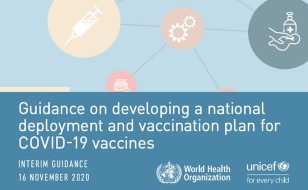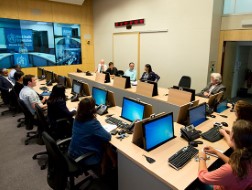Reducing antimicrobial resistance of treatable sexually transmitted infections in antenatal care
The aim of this course is to improve the prevention, detection, treatment and cure of sexually transmitted infections (STIs) and other reproductive tract infections (RTIs) in settings serving pregnant women and their families.
Over 374 million global cases of curable STIs occur annually, making curable STIs an important global cause of maternal and perinatal morbidity and mortality.
While these infections are curable, factors such as increasing antimicrobial resistance of chlamydia, gonorrhoea and syphilis caused by sub-optimal diagnosis (especially in women), and antibiotic misuse and overuse, are making gonorrhoea more difficult to treat as well as complicating treatment options for chlamydia and syphilis.
Course contents
Course Introduction
Module 1: STI awareness and prevention:
This module provides an overview on what STIs and RTIs are, their impact on maternal and perinatal morbidity and mortality, and the role of clinical services in reducing the burden.
Module 2: Planning for STI service provision:
This module provides health system administrators with an overview of essential facility inputs, supplies and equipment to support STI management, within a range of available resources.
Module 3: Detecting and managing STI in pregnancy:
This module provides a review of clinical recommendations for good practice for clinicians (nurses, midwives, doctors) who provide STI services.
Module 4: Follow-Up and monitoring:
This module provides an outline of appropriate follow-up actions (monitoring STIs during pregnancy, treatment of sexual partners, and observation and testing).
Assessment:
There are 25 questions in this quiz-based assessment. The questions are a recap of the content covered in Modules 1 to 4. You must score 80% to pass.
Course Evaluation Survey:
Please complete the course evaluation survey to share your feedback. The development team is keen to hear from you and open to including as many key insights in future versions of this training course as practical.
User Reviews
Be the first to review “Reducing antimicrobial resistance of treatable sexually transmitted infections in antenatal care”
You must be logged in to post a review.







There are no reviews yet.